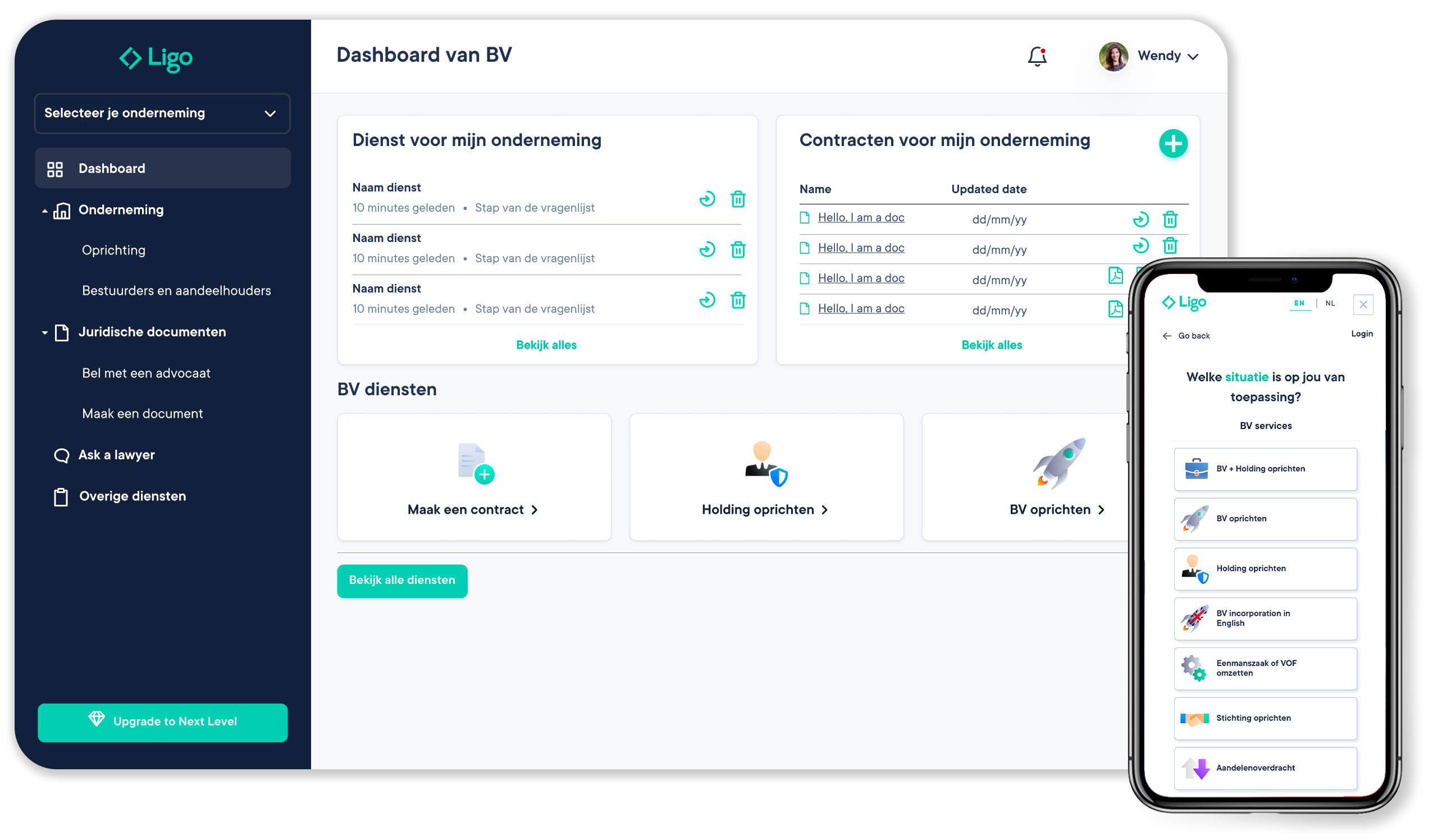Laatst geüpdated op april 12, 2023 door Wendy Bogers
What is legalisation?
Legalisation (in Dutch: legalisatie) is the process of authenticating or certifying a document. During this process a notary (or other official authority such as a town hall) will confirm your identity and your signature.
As a result, no disagreement can arise afterwards about the authenticity of the signature and the risk of fraud is reduced.
How does the legalisation process work?
During an appointment at the notary (or other official authority), you will sign the Power of Attorney and Personal Data Card. Please note: make sure to bring your ID/passport/driver’s licence along when visiting the notary in order to identify yourself.
You can do this at any notary or town hall in The Netherlands. When you visit a Ligo notary in The Netherlands, the legalisation is free. Some notaries even make it possible to do the legalisation online via a video-call.
You do not have to leave your house for this. After legalisation you need to upload the documents to your Ligo dashboard and send the original documents to the notary via postal service.
Is one of the incorporators resident or located outside of The Netherlands?
If you reside or are located outside The Netherlands, you can identify yourself and sign a Power of Attorney at the office of a notary (or other official authority) in your country.
Please note: in this case, the Power of Attorney, the Personal Data Card and some other documents not only need to be legalised, but also have to be provided with an apostille for use in the Netherlands. We have listed such documents below.
What is legalisation of documents by apostille?
Some legalised documents need to be provided with an apostille. Apostilles are used to authenticate an official signature on a document, the official capacity of the person that legalised the signature on the document and the authenticity of any stamp or seal on the document. In this case, the notary’s signature and identity are confirmed by another official authority.
An official authority (most likely a court) in your country adds a certain type of sticker or stamp to the document, known as an ‘apostille’. The apostille shows that the signature of the party that legalised the document is authentic. With an apostille, the document can be accepted in another country. Check if your country is a party to the Apostille Treaty. If so, then you can use apostilled documents in all countries that are a party to this treaty.
Some countries are not a party to the Apostille Treaty. In that case another procedure is required. First, your document needs to be legalised by an official authority in the country where the document was issued. This is usually a notary or the Ministry of Foreign Affairs in your country. Secondly, the country where your document is to be used (The Netherlands), needs to check and legalise the document with a stamp or sticker.
This is mostly done by the Dutch embassy or consulate in your country. Once the document is legalised in this manner, it is ready for use. In some cases, the Consular Service Centre (CDC), part of the Ministry of Foreign Affairs in The Netherlands can help legalise documents for you.
Check how you can have your specific foreign documents legalised for use in The Netherlands. You can contact a notary or any other official authority in your country to ask for the costs and the requirements for legalisation, including an apostille.
Please note: sometimes legalisation can be difficult in certain countries. For instance, due to a conflict, war or due to a lack of authorities that are able to check the documents.
All the required documents summed up
For foreign incorporators the following documents need to be uploaded to the Ligo dashboard to set up the legal entity. We listed the required documents with the legalisation + apostille information for you.
Some documents only need to be filled out, signed and uploaded in your dashboard (no legalisation or apostille is required).
If the incorporator is a natural person and resides outside The Netherlands, the following documents are required:
- Personal Data Card: legalised + apostille
- Power of Attorney(s): legalised + apostille
- ID of the shareholder: legalised only. Is a non-European shareholder involved? Then also an apostille is required.
- Filled out and signed PEP statement
- Filled out and signed UBO declaration
- Copy bank statement or utility bill (note that the notary needs this document in English or Dutch): legalised + apostille
If the incorporator is a legal entity and is located outside The Netherlands, the following documents are required:
- Personal Data Card: legalised + apostille
- Power of Attorney(s): legalised + apostille
- Recent copy extract of the local Chamber of Commerce: legalised + apostille
- Articles of association of the shareholder: legalised + apostille
- ID of the director of the BV or the proxy: legalised + apostille
- Filled out and signed PEP statement
- Filled out and signed UBO Declaration
- Copy register of shareholders: legalised + apostille
- Capacity opinion of a local notary/lawyer: legalised + apostille
- Copy bank statement or utility bill (note that the notary needs this document in English or Dutch): legalised + apostille
- Filled out organisation chart of the corporate structure
This information is based on the working methods of our notaries.

Telefonisch overleggen over jouw situatie?
After legalisation
Once the documents are signed, legalised and in some cases apostilled, you need to upload them into your dashboard. In addition, all legalised and apostilled documents must be sent physically to your Dutch Ligo notary via postal service.
Contact our support team to check the postal address of your notary. Would you like to know more about the legalisation and apostille process or do you have any questions? Feel free to contact us. You can reach Ligo by phone, email or online chat.
- Rylee Startup Story - maart 10, 2023
- Juridische scan voor ondernemers - maart 10, 2023
- Wetswijzigingen ondernemers juli 2022: wat verandert er per 1 juli? - maart 9, 2023










